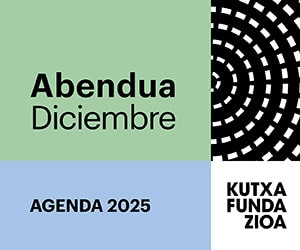Betting systems like Martingale, Paroli, or Fibonacci promise improved chances of winning, but they harm gameplay. Here’s why they don’t work.
- Betting Systems Can’t Beat the House
Betting systems can’t overcome blackjack’s core principles, which ensure the house edge. The main flaw is that they treat each hand as part of a sequence, ignoring that every hand is independent, with the same house edge of 0.5% to 1% when using a perfect basic strategy.
For those looking to enjoy their betting experience, platforms like Winamax France offer a wide range of options, including blackjack, sports betting, and casino games. New players can claim a first deposit bonus of up to €100 in free bets, plus an additional match of up to €250. These bonuses provide more capital to reduce risk while exploring different betting strategies.
- The Martingale system’s flaw is clear during a losing streak: starting with a $5 bet, six losses would need a $320 bet just to break even, risking hitting table limits or depleting your bankroll before a win.
- Progressive systems like Paroli, which increase bets after wins, fail because winning streaks don’t predict future outcomes—each hand has the same chance of winning or losing.
- Even conservative systems like the D’Alembert, which use smaller bet increments, fail because they assume losses and wins will balance out in the player’s favor, while the house edge ensures a slight advantage on every hand.
- Table Limits Kill Betting Systems
Table limits in blackjack expose the flaws in betting systems, especially those relying on bet progression. These limits, combined with the mathematics of probability and the house edge, create barriers that prevent betting systems from working as promised.
- The Martingale system’s weakness is clear with typical table limits – a $10 minimum bet and seven consecutive losses would require a $1,280 bet to recover, but most tables have maximum limits of $500 or $1,000, making recovery impossible.
- Even with a $5,000 table maximum, a player starting with a $25 bet can only sustain eight losses before hitting the limit, and such streaks are common in normal play.
- Table minimums and maximums confine the betting range, preventing players from scaling down to preserve bankroll or scaling up to recover losses, nullifying any theoretical advantages of betting systems.
3. Betting Systems Use Flawed Math
Betting systems in blackjack often stem from mathematical misconceptions and flawed probability assumptions, leading players to make costly errors. A common fallacy is believing that past outcomes influence future results, ignoring that each blackjack hand is an independent event with its probability.
- The Gambler’s Fallacy occurs when players increase their bets after losing several hands, thinking they’re «due for a win.» This misconception overlooks that the probability of winning the next hand remains about 48% with a perfect basic strategy, regardless of previous losses.
- Players also mistakenly believe they can identify «hot» or «cold» tables and adjust their bets accordingly. However, mathematical analysis shows that perceived streaks are normal random distributions, not predictive patterns. A dealer who has busted three times in a row is no more or less likely to bust on the next hand.
- Progressive betting systems exploit these psychological biases by suggesting that patterns exist where there are none. For instance, the belief that doubling bets after losses will eventually guarantee a win ignores both the independence of each hand and the exponential growth of required bets during losing streaks.
4. Betting Systems Fail Long-Term
Betting systems in blackjack are not effective in the long run due to the house edge, which makes it impossible to turn a negative expectation game profitable. Even with a basic strategy reducing the house edge to around 0.5%, the advantage over time ensures that betting systems can’t overcome it.
Large bankrolls can only delay the inevitable, as increased bets during losing streaks will eventually deplete even the largest bankrolls. Over time, the house edge will erode a player’s funds, making it clear why professional players rely on techniques like card counting rather than betting systems for long-term success.
5. Basic Strategy Works Better
The basic strategy in blackjack is a proven way to minimize the house edge, unlike betting systems that only adjust bet size. It reduces the house edge to about 0.5% under standard rules, making it the most reliable method for optimizing outcomes.
- Concrete numbers demonstrate the basic strategy’s effectiveness: while betting systems can’t change the house edge, proper basic strategy reduces the casino’s advantage from around 2-3% for uninformed players to just 0.5%, representing significant savings over time.
- The basic strategy addresses actual gameplay decisions rather than arbitrary betting patterns. For instance, always splitting 8s against a dealer’s 6 has a mathematical advantage that no betting system can match, directly improving your probability of winning.
- A basic strategy promotes consistent betting with optimal decisions. Understanding when to hit soft 17 (A-6) against a dealer’s 7 provides a tangible edge that remains constant regardless of previous hands or bet sizes.
For those interested in expanding their gambling experiences beyond blackjack, Consider trying the Double Diamond slot machine to expand your gambling experience. With an RTP of 95.44% and medium volatility, it balances small and large wins. The game, popular in both land-based and online casinos, has fewer symbols, increasing the chance of hitting winning combinations, such as the 1,000x payout for three Double Diamond symbols. Learn more about strategies for maximizing your winnings on the Double Diamond slot by visiting https://www.freeslots99.com/blog/double-diamond-slot-machine-strategy-to-win-big/.
***
The principles of blackjack—like the house edge, independent hands, table limits, and betting system limitations—apply to online play. However, online blackjack’s unique features, such as RNG and faster gameplay, can affect the effectiveness of these strategies. Recognizing these factors helps players make smarter, more informed decisions.


Deja un comentario